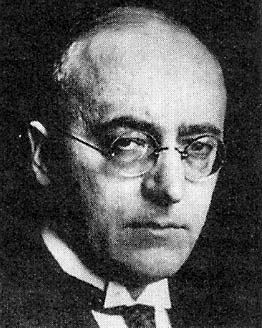Heinrich Brüning
From Kaiserreich
|
Doctor Heinrich Brüning (born on November, 26 1885 in Münster, Westphalia, Germany) is a German economist and politician. After being State Secretary for Finance from 1931 to 1934 under Reichskanlzer Oskar von Hutier, he is the current chairman of the Roman CatholicDeutsche Zentrumspartei's fraction in the Reichstag.
Biography
Born in Münster in Westphalia, Brüning lost his father when he was one year old and thus his elder brother Hermann Joseph played a major part in his upbringing. Although raised a devout Catholic, Brüning was also influenced by Lutheranism's concept of duty, since the Münster region is home to both a majority of Roman Catholics and some Prussian-influenced Protestants.
After finishing his schooling, he first tended towards the legal profession, but then studied Philosophy, History, German and Political Science at Strassburg, the London School of Economics and Bonn, where he achieved his doctorate in national economy. One of his professors at Strasbourg, who had a major influence on Brüning was the historian Friedrich Meinecke.
A volunteer in the Weltkrieg, he served, from 1915 - 1921, as a machine gunner, receiving rank as an officer and earning an Iron Cross. Seeing the terrible sufferings of a German population hitted by the British blockade, he decided not to pursue his academic career further, but preferred helping those that had fallen into trouble. He collaborated with the social reformer Carl Sonnenschein and worked in the "Secretariat for social student work", helping demobilised soldiers to study and work. After six months he entered the Prussian welfare department and became a close associate of the minister Adam Stegerwald. Stegerwald, also leader of the Christian trade unions, made him chief executive of the unions in 1920, a post Brüning retained until 1930: he was in fact encouraged by the German government, hoping that Christian trade unions would impeach the rise of revolutionnary Syndicalism in Germany. As the editor of the union newspaper Der Deutsche, he advocated a "social popular state" and "Christian democracy," based on the ideas of Catholic Corporatism.
He had also joined the Deutsche Zentrumspartei and in 1924 he was elected to the Reichstag, representing Breslau. In parliament, Brüning quickly made a name for himself as financial expert and managed to push though the "lex Brüning", which restricted the wage tax. He always insisted on a disciplined, thrifty approach towards money, criticizing both an increase of civil service salaries and the luxury of profiteers. Recognized for his expertise, this personal reserve and calmness hampered dealing with him on personal level. From 1928 to 1930 he was also a member of the Prussian parliament and in 1929 he was elected chairman of the Centre Party's fraction in the Reichstag, a post that he retained until now.
In 1931, after the fall of State Secretary of Finance Johannes Popitz, the Imperial Chancellor von Hutier, who wanted to secure an alliance with the German Catholics, called Brüning to succeed him. Having to deal with the incoming economic crisis within the Mitteleuropa system, he tried to pursue his primary goals of Welfare state based on Christian valors, but the Social-Democrat and National-Populist fractions within the Reichstag refused to follow him, for different motives: the SPD feared a corporatist system, while the GDVP believed he was about to put in place a Marxist economy. Even if he managed to retain his seat in the Parliament, Brüning was dismissed from his duties by Franz von Papen, who had personal reluctance towards him. Now in the opposition, Brüning considers himself spokesperson of the Catholic causes in nowadays Germany.

